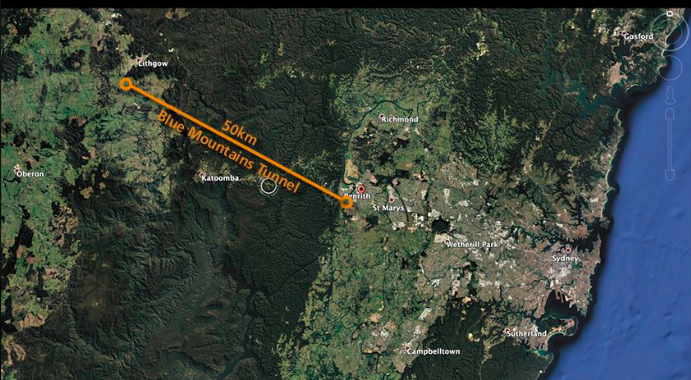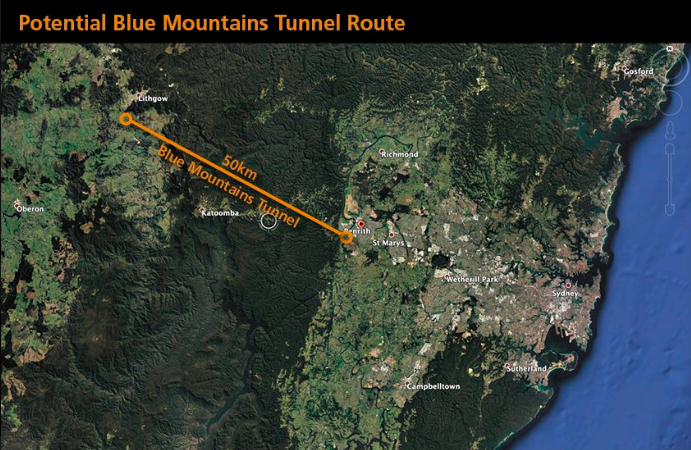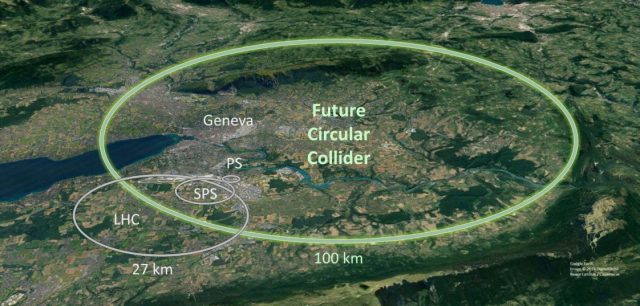

Elon Musk—CEO of Tesla, SpaceX, and The Boring Company—has been pitching his new tunnel-boring capabilities to curious elected officials as well as the director of CERN (the organization that owns and operates the Large Hadron Collider in Switzerland).
Just a month after Musk opened up his first,
rather rugged test tunnel under the SpaceX campus in Hawthorne, California, the CEO has been on Twitter floating prices and talking projects.
Last week Jeremy Buckingham, a member of Parliament in New South Wales’ Upper House, asked Musk on Twitter, “How much to build a 50km tunnel through the Blue Mountains and open up the west of our State?” Musk replied, “About $15M/km for a two-way high-speed transit, so probably around $750M plus maybe $50M/station.”
About $15M/km for a two way high speed transit, so probably around $750M plus maybe $50M/station
— Elon Musk (@elonmusk) January 16, 2019
In his original tweet, Buckingham tagged Mike Cannon-Brookes, an Australian billionaire who co-founded Atlassian. Cannon-Brookes was involved with a bet in 2017 that led to Tesla deploying the world’s largest battery in South Australia.
According to the Australian Broadcasting Corporation (ABC), senior engineering and tunneling experts are incredibly skeptical of Musk’s prices. They said that including ventilation and emergency egress locations in the mountainous region would increase the cost, as would “geotechnical conditions and integration with the wider transport network.”
Musk himself has said that traditional tunnels can cost up to $1 billion per mile in heavily populated areas. An estimate of $15 million/km or roughly $24 million/mi would represent a significant and ground-breaking technological change, the likes of which The Boring Company hasn’t demonstrated yet. At a press briefing in December, Boring Company representatives showed off the next steps in modifying boring machines to improve on the cost of boring. But these machines were still demonstration projects as of December 18.
Such a tunnel would have to conform to the operating model that Musk outlined when he opened his first tunnel in Hawthorne in December—that is, it would be a tunnel that exists exclusively for electric vehicles. Owners of electric vehicles could drive into the tunnel, and people who don’t own electric vehicles would, theoretically, catch rides in electric vehicles for hire managed by the owner of the tunnel. (Musk said in December that The Boring Company would be willing to own and operate the transportation networks that it builds or it would turn them over to the entity that commissioned the network, depending on circumstances.)
Musk has said that restricting the tunnels to all-electric vehicles is key to reducing the cost of tunneling. He reasons that the diameter of the tunnel can be somewhat smaller since electric vehicles don’t need as much airflow as internal combustion vehicles. (And a smaller tunnel diameter means less muck to haul out and fewer materials needed to reinforce the structure.)
No CERNtainty of this partnership

CERN
On Monday morning, Musk made a second informal pitch. He tweeted in response to an MIT Technology Review article about the Future Circular Collider, a project by CERN to build a new particle collider that’s four times bigger than the current Large Hadron Collider.
“Director of CERN asked me about Boring Co building the new LHC tunnel when we were at the @royalsociety,” Musk tweeted. “Would probably save several billon [sic] Euros.”
Director of CERN asked me about Boring Co building the new LHC tunnel when we were at the @royalsociety. Would probably save several billon Euros.
— Elon Musk (@elonmusk) January 21, 2019
This month, CERN released a Conceptual Design Report outlining a series of high-performance particle colliders housed in a tunnel that is 100km (62mi) in circumference. According to MIT Technology Review, the Future Circular Collider could be completed as soon as 2040. Absent a lower Boring Company bid, researchers have estimated that the tunnel alone would cost €5 billion ($5.7 billion) to build.
Update: In a response to an inquiry from Ars Technica, CERN’s head of media relations, Arnaud Marsollier, wrote:
I can confirm that Elon Musk and Fabiola Gianotti [the Director of CERN] happened to meet back in July last year at a ceremony of the Royal Society for new Fellows & Foreign Members.
In view of projects for future larger accelerators, CERN is open to new, cost-effective technologies that could lead to their implementation, including the tunnels that will be needed.”
I understand that Elon Musk is a big fan of CERN’s work and mentioned to Fabiola Gianotti that he would be interested in discussing further on how he could help us for such large future colliders.









